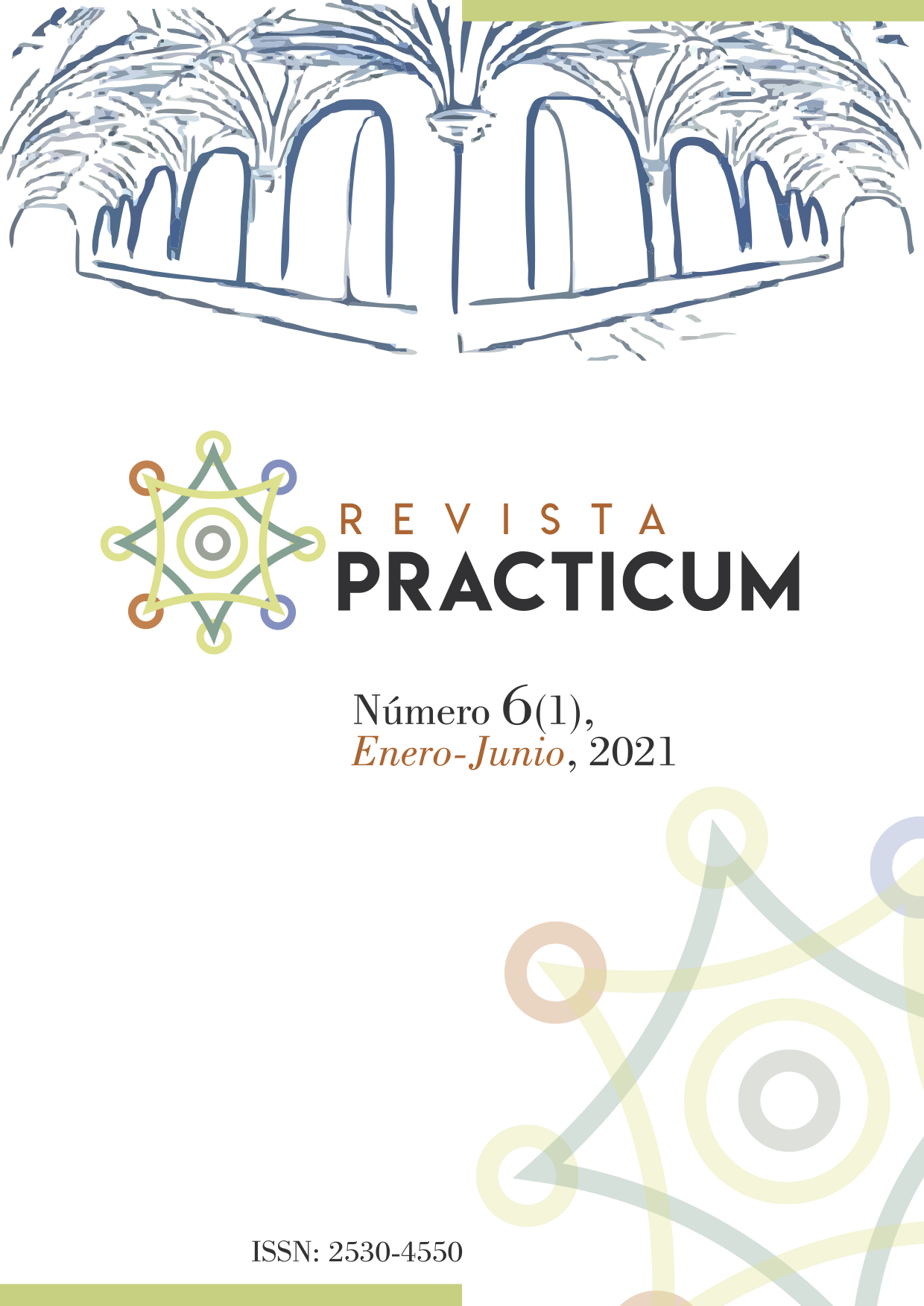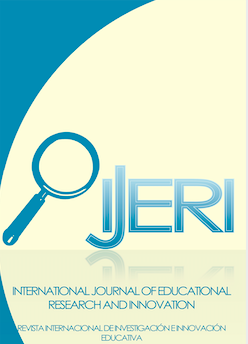Assessment Challenges & Portfolios
DOI:
https://doi.org/10.24310/RevPracticumrep.v6i1.10160Keywords:
Portfolios, formative assessment, constructivism, reflexive approach, self-assessmentAbstract
Portfolios can be defined as retaining and organizing information instruments concerning the processes carried out by the student over a certain period and which are able to provide a broad view and as detailed as possible of the different components of its cognitive, metacognitive, affective and even moral development. This article aims to address the relevance of using portfolios by teachers who favour reflection, autonomy in learning, and innovation in the teaching-learning process. In Education, the portfolio has taken an important role, and has become an assessment tool, which gives visibility to the knowledge learned, which leads to reflection, which highlights the different elements of students’ development and it is not, therefore, just a sampling of activities.
Downloads
Metrics
References
Abrami, P. C., & Barrett, H. (2005). Directions for research and development on electronic portfolios. Canadian Journal of Learning and Technology, 31(3). https://doi.org/10.21432/T2RK5K
Arter, J.A., & Spandel, V. (1992). Using portfolios of student work in instruction and assessment. Educational Measurement: Issues & Practice, 11(1), 36–44. https://doi.org/10.1111/j.1745-3992.1992.tb00230.x
Barreira, C., Bidarra, G., Monteiro, F., Vaz-Rebelo, P., & Alferes, V. (2017). Avaliação das aprendizagens no ensino superior. Perceções de professores e estudantes nas universidades portuguesas. Revista Iberoamericana de Educación Superior, VIII(21),24-36.
Bidarra, M.G., & Festas, M.I. (2005). Construtivismo (s): Implicações e interpretações educativas. Revista Portuguesa de Pedagogia, 39 (2), 177-195. https://bit.ly/3aJNy2B
Black, P., & Wiliam, D.. (2009). Developing the theory of formative assessment. Educational Assessment Evaluation and Accountability. 21. 5-31. https://doi.org/10.1007/s11092-008-9068-5.
Black, P., & Wiliam, D. (1998). Inside the black box: Raising standards through classroom assessment. PDK International. https://doi.org/10.1177/003172171009200119
Bloom, B. S. (1969). Some theoretical issues relating to educational evaluation. In R. W. Tyler (Ed.), Educational evaluation: New roles, new means (National Society for the Study of Education Yearbook, Vol. 68, Part 2, pp. 26–50). University of Chicago Press.
Bloom, B. S., Hastings, J. T., & Madaus, G. F. (1971). Handbook on the formative and summative evaluation of student learning. McGraw-Hill.
Brookhart, S. (2008). How to give effective feedback to your students. Association for Supervision and Curriculum Development.
Brown, H. D. (2001). Teaching by Principles: an interactive approach to language pedagogy. Longman.
Brown, K. G., & Gerhardt, M. W. (2002). Formative evaluation: An integrative practice model and case study.Personnel Psychology,55(4), 951-983. https://doi.org/10.1111/j.1744-6570.2002.tb00137.x
Butler, P. (2006). A review of the literature on portfolios and electronic portfolios. Massey University College of Education. https://bit.ly/3xuSmm2
Chang, C. (2001). Construction and evaluation of a web-based learning portfolio system: An electronic assessment tool. Innovations in Education and Teaching International, 38(2), 144-155.
Farr, R. C., & Tone, B. (1998). Portfolio and Performance Assessment: Helping Students Evaluate their Progress as Readers and Writers. Harcourt Brace College Publishers.
Fernandes, Domingos, Borralho, A. Barreira, Carlos. (2015). Avaliação, Ensino E Aprendizagem No Ensino Superior Em Portugal E No Brasil: Realidades e Perspetivas (Volume I)
Fonseca, J. et al. (2015). Feedback na prática letiva: Uma oficina de formação de professores. Rev. Port. de Educação, vol.28, no.1, p.171-199.
Formosinho, J. (1992). O Dilema Organizacional da Escola de Massas. Revista Portuguesa de Educação.
Fosnot, C. T. (1996). Construtivismo: uma teoria psicológica da aprendizagem. In C. T. Fosnot (Ed.) Construtivismo e educação. Teoria, perspectivas e prática. Instituto Piaget: Horizontes Pedagógicos.
Gates, B. (1995). Rumo ao Futuro. McGraw-Hill.
Hattie, J., & Timperley, H. (2007). The power of feedback. Review of Educational Research, 77(1), 81-112.
Hattie, J. (2009). Visible learning: A synthesis of over 800 meta-analyses relating to achievement. Routledge.
Leite, E. (1995). O Professor Aprendiz - Criar o Futuro. Programa Europeu Petra II, Acção II. Ministério da Educação/ Departamento do Ensino Secundário.
Lopes, J., & Silva, H. (2010). O professor faz a diferença. Na aprendizagem dos alunos. Na realização escolar dos alunos. No sucesso dos alunos. Lidel.
Lopes, J., & Silva, H. (2012). 50 Técnicas de avaliação formativa.Lidel.
Matos,J.A. (2006). Trajectórias Interdisciplinares. Uma Aplicação Multimédia sobre o Alto Douro. http://hdl.handle.net/10216/64122
Moran, J. M. (2000). Novas Tecnologias e Mediação Pedagógica. Papirus.
Morin, E. (2002). Reformar o Pensamento, A Cabeça Bem Feita. Instituto Piaget.
Neves, A., & Barbosa, J. (2006). Fantasmas, mitos e ritos da avaliação das aprendizagens. Revista Portuguesa de Pedagogia, 3, 219-235. https://doi.org/10.14195/1647-8614_40-3%25x
Nunan, D. (1995). Language Teaching Methodology: a textbook for teachers. ELT.
Perrenoud, P. (1998). From formative evaluation to a controlled regulation of learning processes. Towards a wider conceptual field. Assessment in Education: Principles, Policy & Practice,5(1), 85-102. https://doi.org/10.1080/0969595980050105
Ponte, J., & Serrazina, L. (1998). As Novas Tecnologias na Formação Inicial de Professores. Lisboa : Ministério da Educação, Departamento de Avaliação, Prospectiva e Planeamento.
Prator, C.H. (1979). Cornerstones of method and names for the profession. In M. M. Murcia (1991). Teaching English as a Second or Foreign Language. Newbury House Publishers.
Prazeres, M., & Casanova, M. (2015) . A Avaliação como Promoção da Aprendizagem dos Alunos. In Teresa Estrela et al. Atas do XXII Congresso da AFIRSE: Diversidade e Complexidade da Avaliação em Educação e Formação. Educa/Afirse (pp.1282-1290).
Sá-Chaves, I. (2000). Portefólios Reflexivos. Estratégia de Formação e de Supervisão. Universidade de Aveiro.
Santos, M. (s/data). Um olhar sobre o conceito de comunidades de prática. https://bit.ly/3iMW0D2
Shute, V. J. (2008). Focus on formative feedback. Review of Educational Research, 78(1), 153-189. https://doi.org/10.3102/0034654307313795
Silva, H., & Lopes, J. (2015). Eu, professor, pergunto. 20 respostas sobre planificação do ensino-aprendizagem, estratégias de ensino e avaliação (Vol. 1). PACTOR.
Trindade, V. M. (2003). Uma Perspectiva Didáctica para o Ensino da Ciências. In Org. Costa, P., Chouriço, J., Mendes, P. Neto, A. e Nico, A. Didácticas e Metodologias de Educação. Percursos e Desafios. Universidade de Évora. Departamento de Pedagogia e Educação.
Venn, J. J. (2000). Assessing students with special needs (2nd ed.). Merrill
Wiliam, D. (2006). Formative assessment: Getting the focus right. Educational Assessment, 11(3 & 4), 283–289. https://doi.org/10.1207/s15326977ea1103&4_7
Downloads
Published
How to Cite
Issue
Section
License
Acceptance of the work implies that the author grants Revista Prácticum the exclusive rights to reproduce, distribute and sell his or her work worldwide, both in digital and paper formats, CD-ROM, etc.
Likewise, the authors shall grant Revista Prácticum the rights of dissemination, public communication on the Internet and IT networks, data buses, as well as any other portals or electronic devices for online consultation of its contents and extracts, under the conditions of the portal, repositories or databases where the work is stored.
Revista Prácticum allows authors to publish and disseminate their articles and works on their personal websites, research teams, institutional repositories and scientific databases. All this in accordance with the Creative Commons 4.0 License









8.png)








